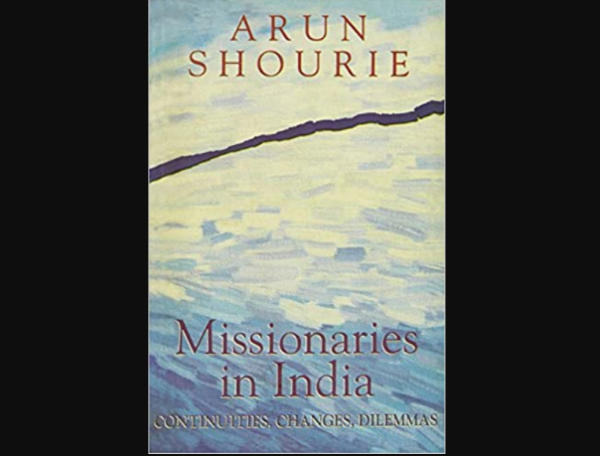INSIGHT IV: Reality of Christian missionaries through the lens of Arun Shourie's book
When two communities don"t associate during the prayers, it becomes evident that the conversion was based on material gain.
Total Views |
Namaskar, the new series 'INSIGHT' is an attempt to present the central thought of a thought-provoking book. "Missionaries In India Continuities, Changes, Dilemmas", a book by Shri Arun Shourie compels readers to contemplate various points put forth.

Also Read: INSIGHT II: Swami and Gandhi's views on Christian missionaries through the lens of Arun Shourie's book
The 'Christian Missions enquiry Committee' headed by justice M B Rege submitted its report to government of Madhya Bharat in 1956. It made some observations --
1) loans were given to tribals and children were kept as surety.
2) Loans against land or help in the draught period, or opportunity of medical help was probably offered depending upon the possibility of converting to Christianity.
It clearly states that the conversion could be labelled as 'unspiritual and unethical'. Famine years saw mass conversions. A woman described the situation during the famine. Hindus rejected any help to tribal people, there was no work available to support their living,no help from the government was given. And with the promise of conversion they received some help.
A big number of conversion could be noticed in this period.
Another reason observed was madical help during the epidemic of Cholera. Atmanand Bharati of the Arya samaj efforts helped most of the people to return to the original faith.
But after the conversion too ,it was observed that two castes would not dine together.
Conversion took place due to supply of clothes, money, medicine and when they were reconverted,they were denied medical facilities.
It was confessed that a very small percentage of conversions were great extent real, else it was the swelling of numbers. The report states that this should not be allowed.
The report noted that chronic poverty, untouchability were the basic causes. The converts expected improvement and change in their social status. They wanted help but they were not aware of the changes in the way of living or the change of faith would imply.
The community which feel bound by religious practice couldn't be converted easily. Only those who had a long training or economic dependence could become practicing Christians.
It is stated that when two communities don't associate during the prayers ,it becomes evident that the conversion was based on material gain.
1911 census report noted the fact that some castes were not assimilated by the rest even after many decades. Conversion could not change this social picture. It was then acknowledged that education might help to bring change in social status.
Even in 1994 Pune review admitted that cast difference, and discrimination was fact.



